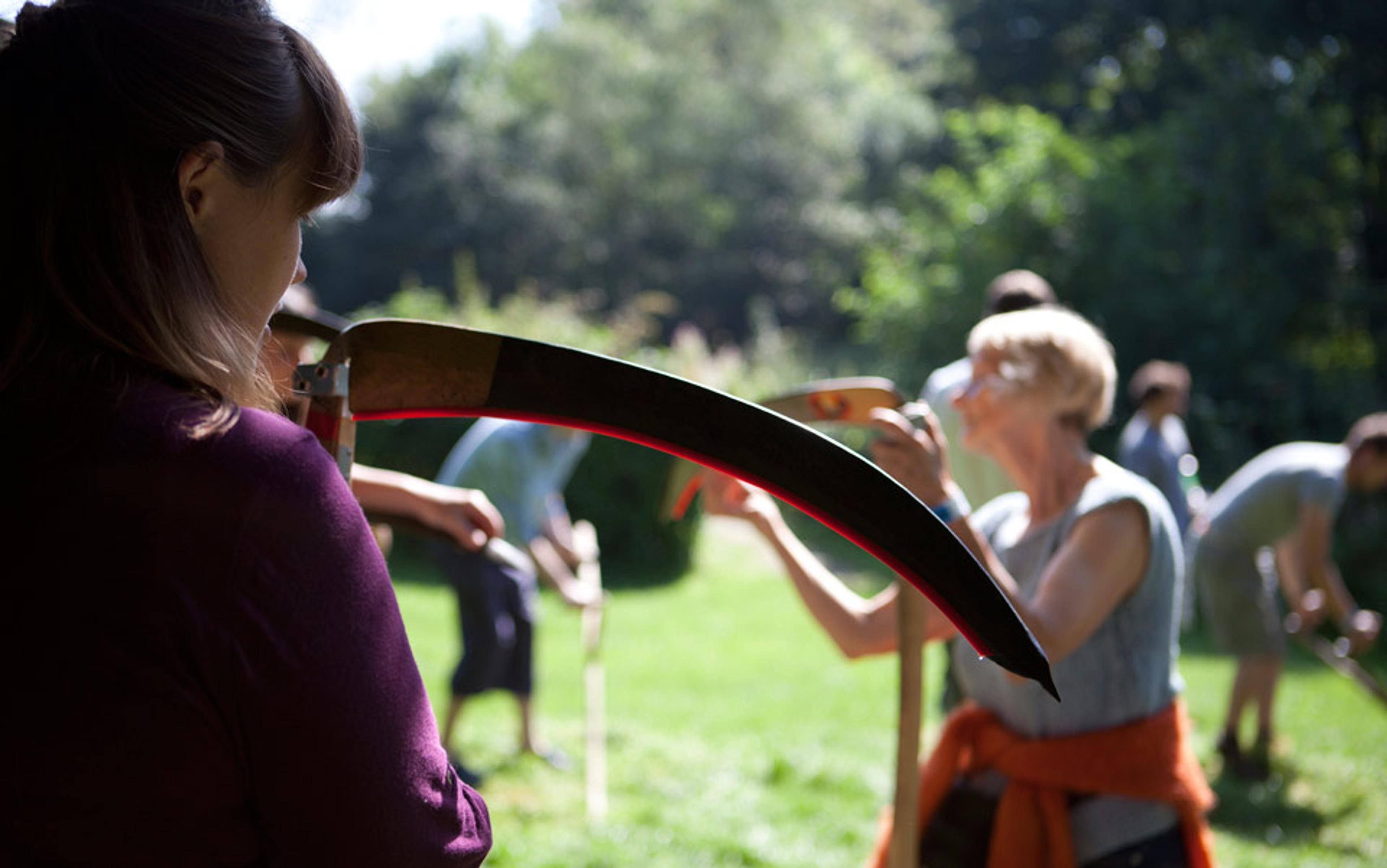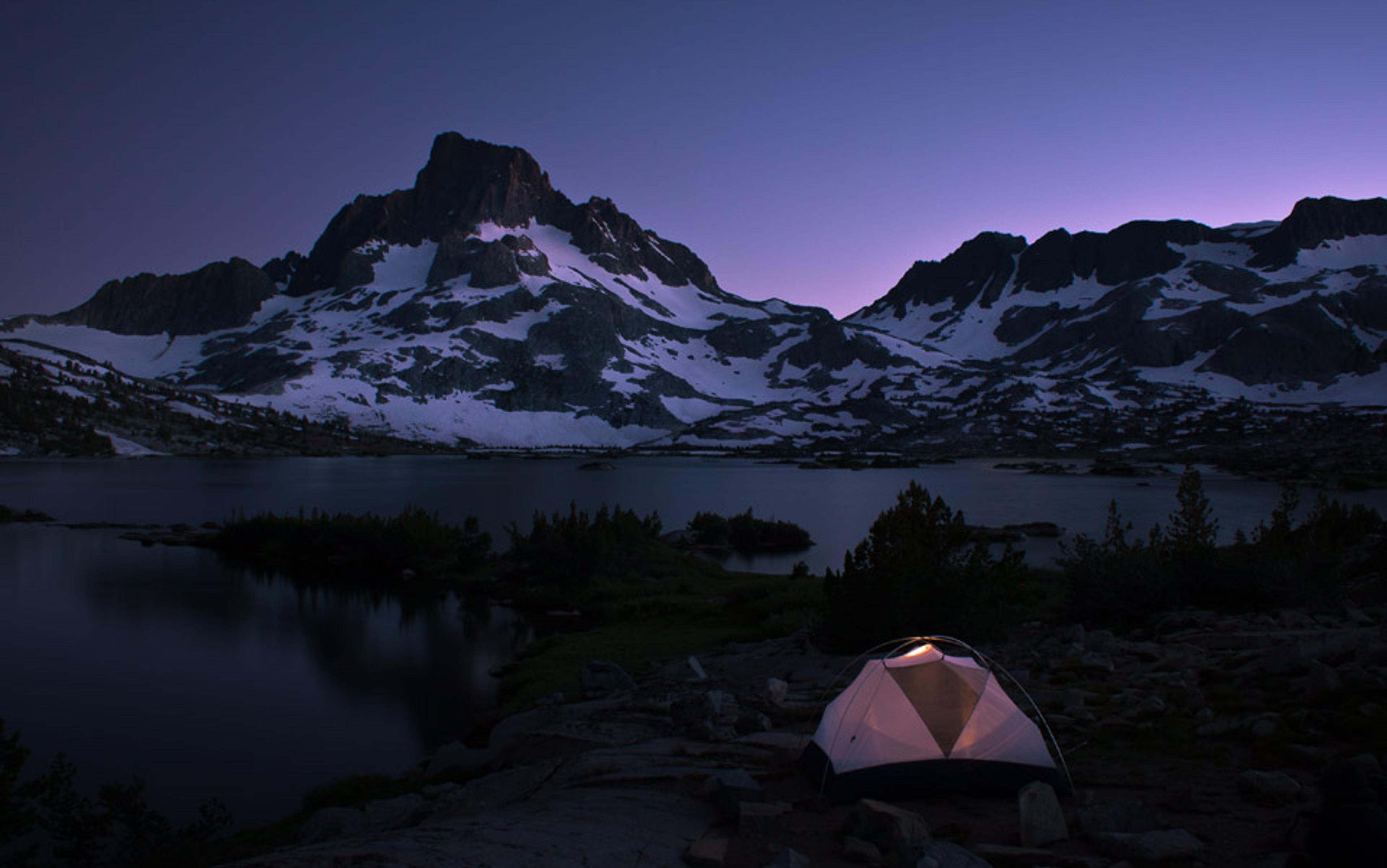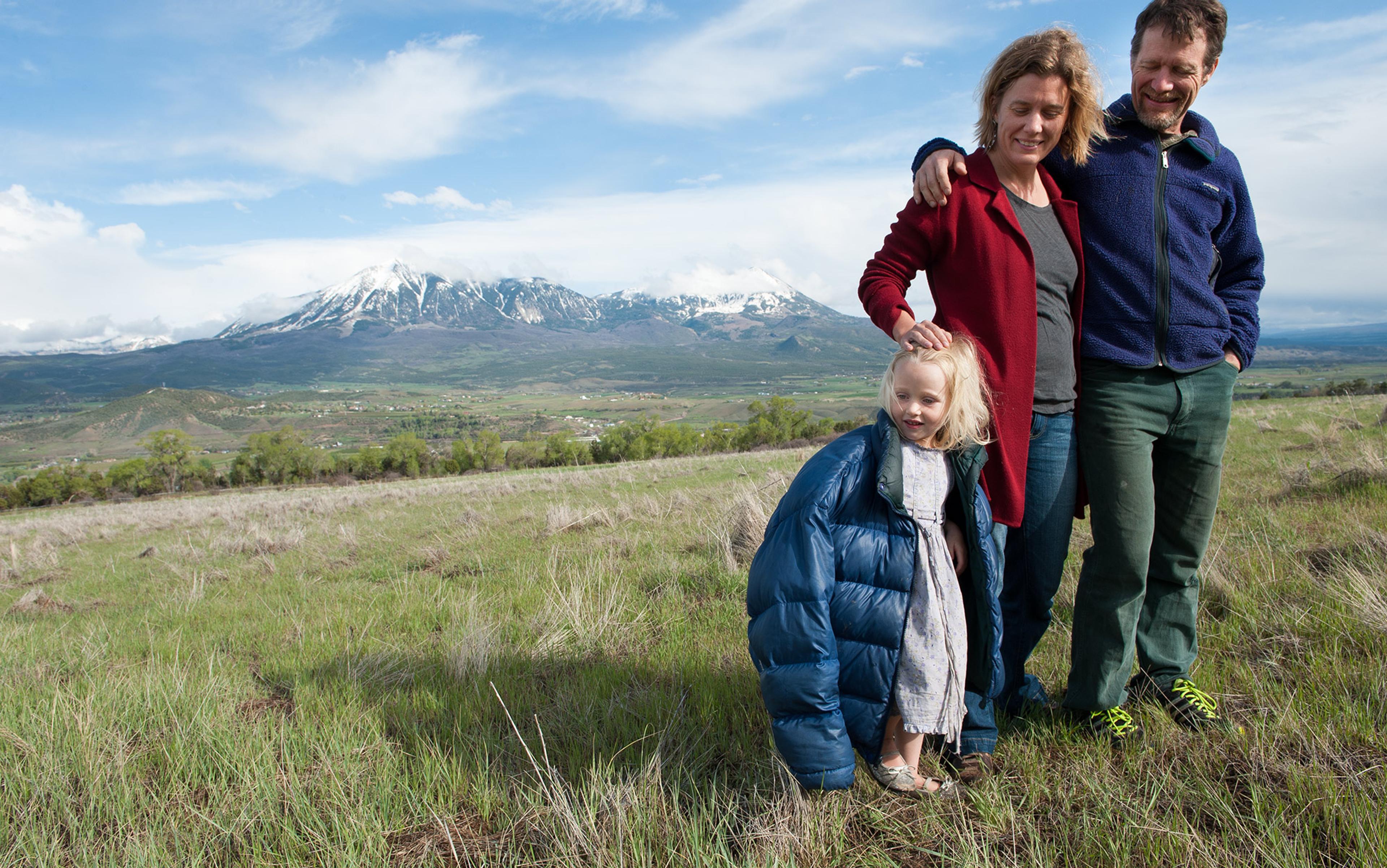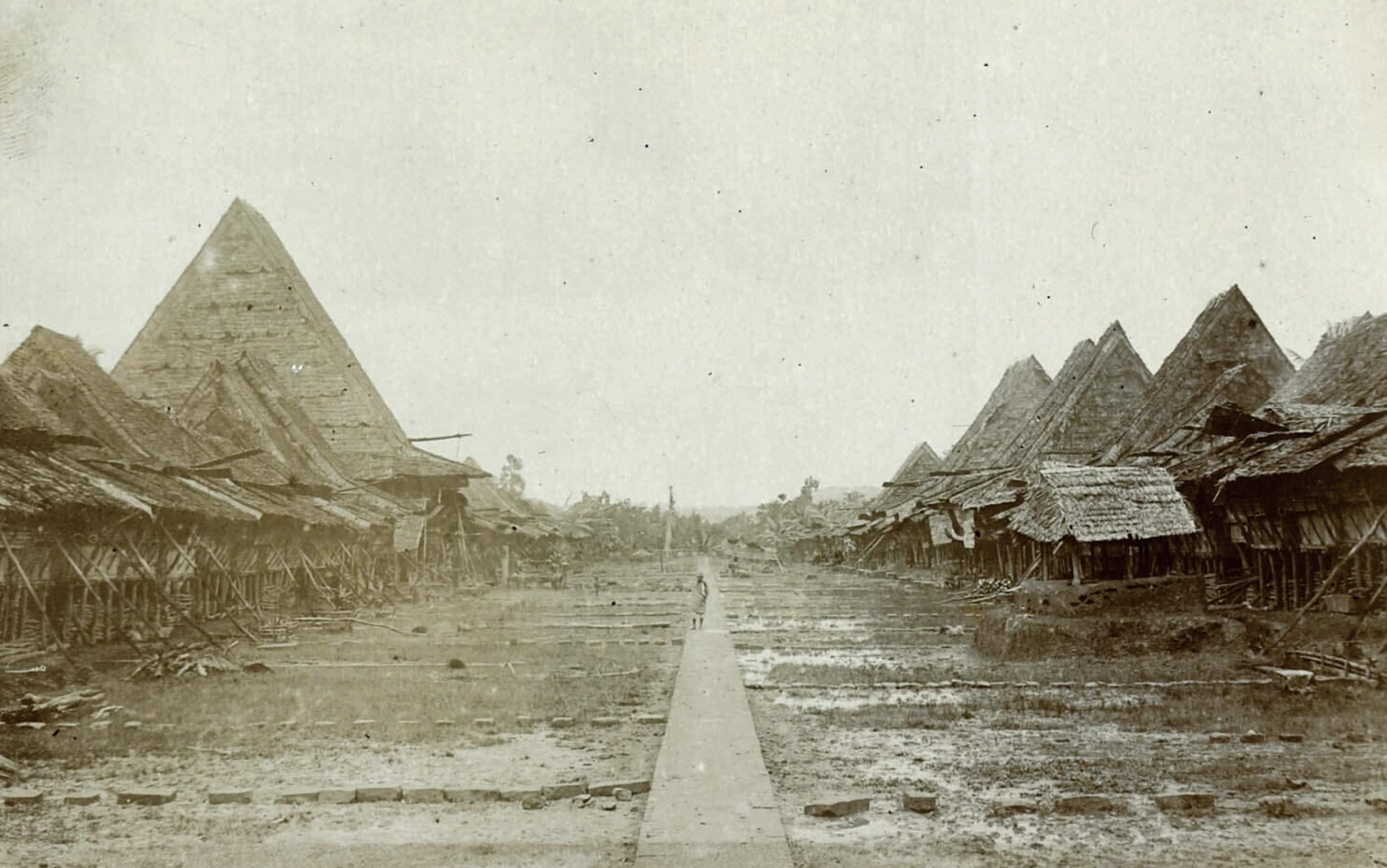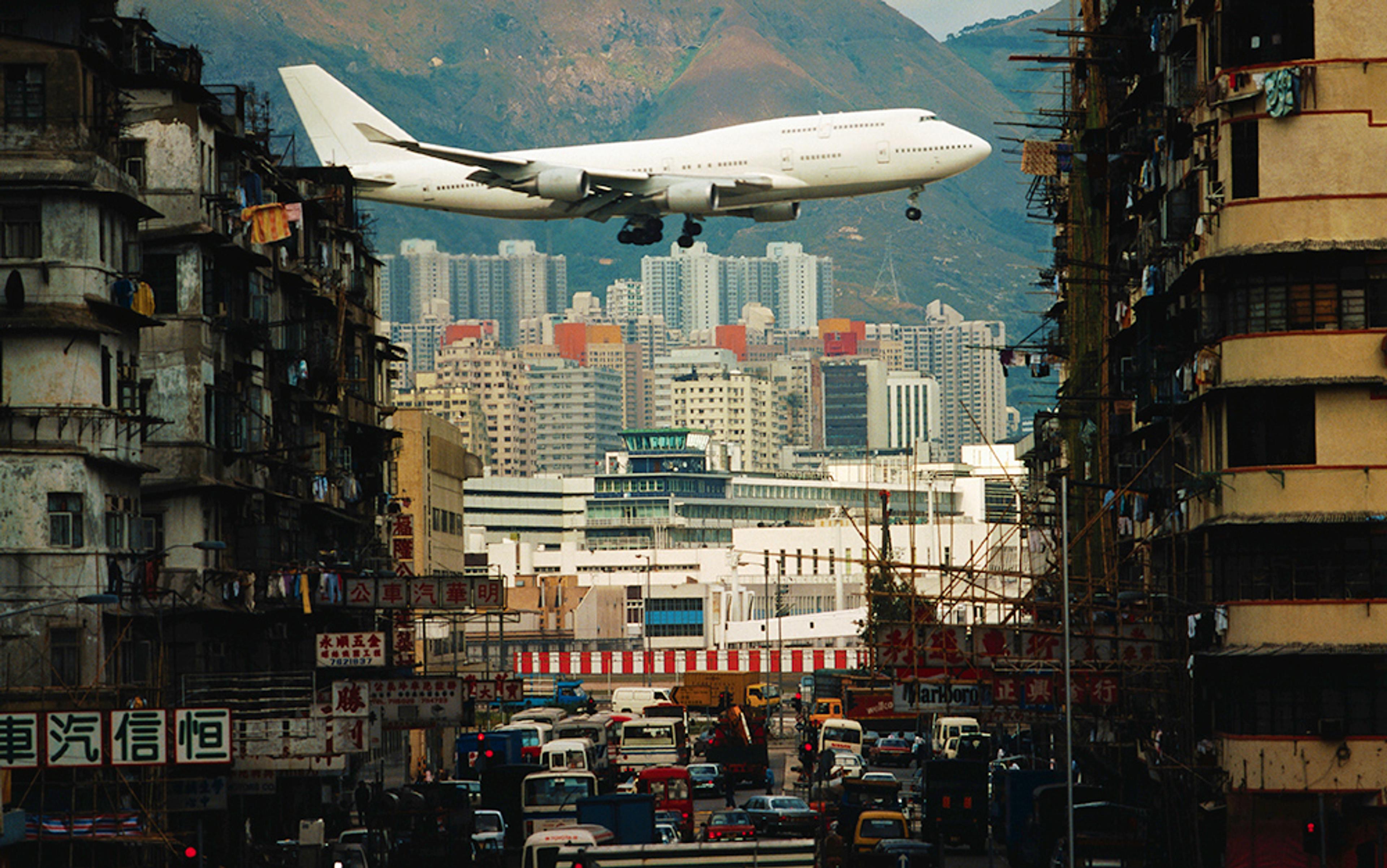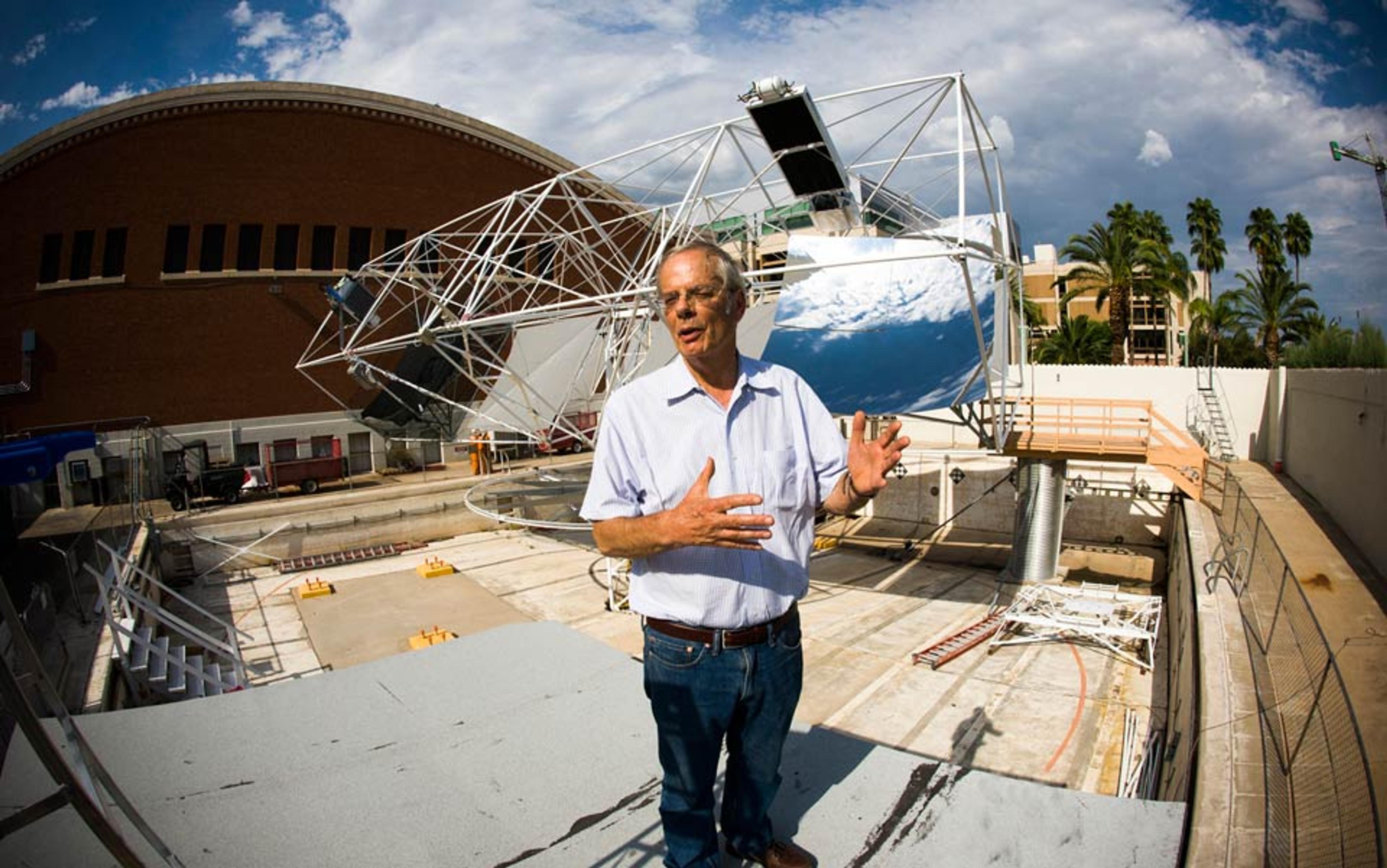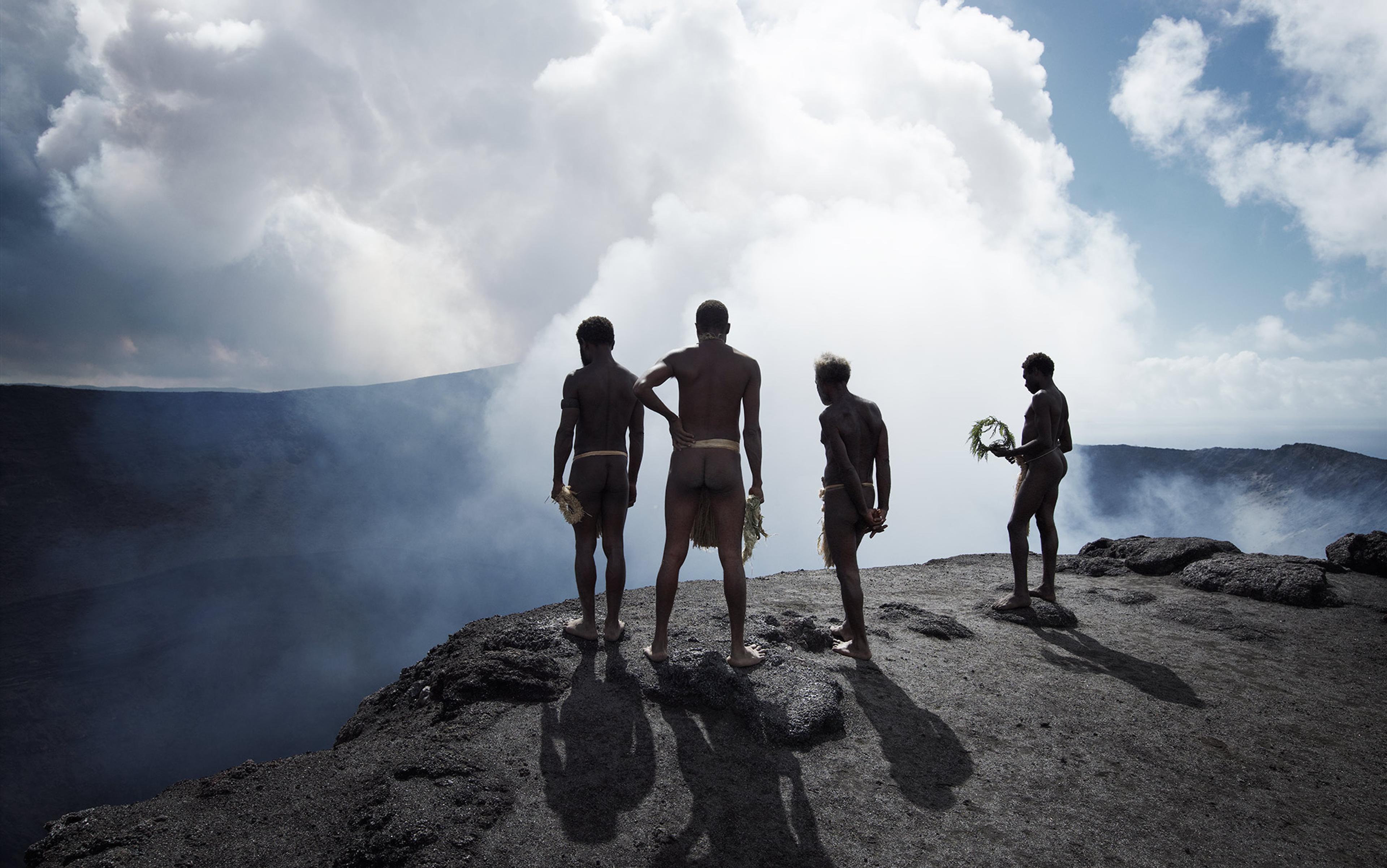In late August, on a hillside in England’s South Downs where the sun beat down through the trees in stunning shafts, I wandered off to find a secluded place. The other members of my group had fanned out. Every now and then I would glimpse them through the woods. I pressed on until they disappeared from view, then picked up a piece of brushwood and began to scratch at the soil, flicking worms aside and breaking roots with my fingers. Perspiration washed suncream into my eyes and made me swear, the puerile, inventive swearing that goes with digging a hole with a stick. After about 10 minutes I had made a hollow a few inches deep. It was the diameter of my head. I lay down carefully and rested my chin on its rim, causing sweat to run off my nose into the soil. I took a deep breath and screamed as loudly as I could.
Then I stood up and looked around. Nobody was in sight. With my foot I filled the hole, pressing the earth back down. I thanked it stiffly for receiving my scream, feeling, in the least rooted way possible, very English. ‘Myth,’ the storyteller Martin Shaw had said earlier in the day, ‘is the power of a place speaking.’ But this place was keeping schtum. According to my phone, there were about 15 minutes of wilderness initiation to go. I really didn’t want to stumble on any members of the group performing their own exercises so I waited in the shadow of a tumbledown wall, listening.
Screams crossed the wood from all directions. A few people seemed to be having several goes, one horripilating howl after another, their voices coming from different points of the compass each time. Our instructor had warned us that the first scream might feel forced. After that, perhaps the earth would pull something out of us, would break through to an authentic core of pent-up feeling. Some people were having so much pulled out them it was hard to believe they would make it back to the muster point. We’d find them as husks, yellow cowls of evacuated skin.
But the others all drifted back in what looked like a state of poetic contemplation, relaxed and springy. The men wore beards and medicine-man adornments — animal-tooth pendants, feathers behind the ear. The women sported Peter Pan tunics and yogically extended backs. Everyone was, as my mother would say, well-spoken. An older chap in a fishing hat announced that he had run into a pair of mourners. They were looking for a fresh grave in the wood; a boy had been buried there the week before. ‘It was like Hamlet,’ he said sagely. ‘You know. Death.’ Ah, we said.
‘All around us are signs that our whole way of living is already passing into history’
We were learning how to become grown-ups. Some of us looked to be in our 70s. Shouting into the ground hadn’t made us grown-ups; that was just a taster. The real process, if we ever chose to submit to it, would take days. We’d be goaded, provoked, all our hidden inner darkness would bubble up to the surface. Then we’d go off to a lonely place with only water to drink and a tarp to keep the rain off. There we would stay for four days and nights, just our galloping minds for company. Real grown-ups were in short supply, said our instructor, Tom Hirons, an acupuncturist and poet as well as a guide on wilderness rites of passage. We came from a culture that didn’t know how to make them. In our culture, becoming a grown-up was a radical act. ‘And that,’ Hirons said, ‘tells you how bad things have got.’ Real grown-ups would never have let the world get into such a state.
I had joined 300 or so campers at the third Uncivilisation festival, held in the grounds of the Hampshire Sustainability Centre, amid the rolling fields outside Petersfield. This year’s version might have been the quietest music festival since the invention of loudspeakers. In the spirit of treading lightly upon the earth, no radios played in the campsite. The headline event was a fireside dance. On the Friday evening, Hirons, the instructor, drew a crowd by reciting a Siberian folk-tale in a shamanic mask, to the accompaniment of chimes and rattles. The two evenings of programmed music were candle-lit, entirely acoustic and, in the centre’s outdoor auditorium, close to the threshold of audibility.
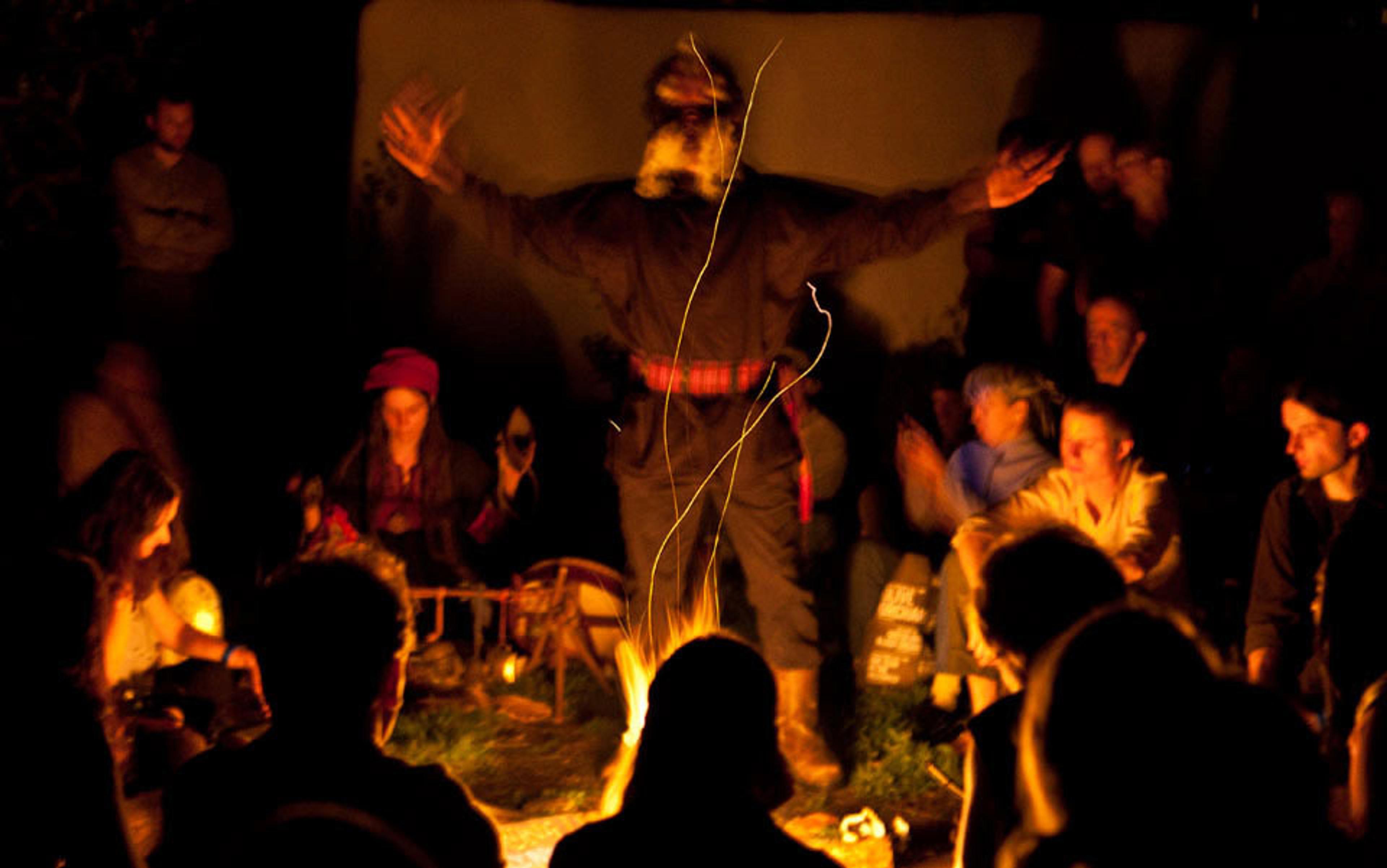
An intense preoccupation with story and ritual: Tom Hirons tells a Siberian folk tale.
At times, that created its own spell. Bethia Beadman, a vampish torch singer in the tradition of PJ Harvey, apologised for the slightness of her arrangements. She needn’t have worried: straining to catch them added something to their peculiar glamour. Other acts fared less well. Julian Gaskell’s rasping vocals got lost amid the frenetic gipsy jazz of his Ragged Trousered Philanthropists. It didn’t matter: offstage, folk musicians exchanged songs day and night. On the first night, guitars passed back and forth in the central marquee, all distinction between performer and audience erased. It was, as Uncivilisation’s charismatic architect Paul Kingsnorth told us, not a consumer experience.
The festival is an outgrowth of an inscrutable cultural programme begun in 2009 by two journalists, Kingsnorth himself and Dougald Hine. Together they wrote a pamphlet called Uncivilisation: The Dark Mountain Manifesto. ‘We are at a time of social, economic and ecological unravelling,’ they declared. ‘All around us are signs that our whole way of living is already passing into history.’ The environmental movement had failed: the ship of society would never turn around in time. All that was left to do was prepare for the crash, and perhaps learn to look on the bright side. ‘The end of the world as we know it is not the end of the world full stop. Together, we will find the hope beyond hope, the paths which lead to the unknown world ahead of us.’
Considering the following it has picked up — Dark Mountain now has 10 regional chapters in the UK alone — the manifesto is a strange document. It uses and advocates an ominously Heideggerian ‘elemental’ language, written ‘with dirt under our fingernails.’ A surprising amount of it is dedicated to a reappraisal of Robinson Jeffers, an apocalyptic poet of the interwar years. He supplies the pamphlet with its epigraph and the project with its name: ‘The beauty of modern/Man is not in the persons but in the/Disastrous rhythms […] the dance of the/Dream-led masses down the dark mountain.’ One might think there would be bigger fish to fry on the eve of civilisational collapse than the reputation of a neglected author — if there are any fish worth frying at all. Yet the Dark Mountaineers treat literature with startling seriousness.
Our whole trouble, they insist, results from ‘the stories we have told ourselves.’ By way of addressing the damage, the group has now published three anthologies of ‘uncivilised’ writing and art, produced by its swelling band of supporters. The styles and tones vary but all three collections stick to the keynotes of the manifesto: the inevitability of environmental and economic collapse; the spiritual imperative to return to the land; the search for stories to replace the ‘myth of progress’ that has captivated us all.
When I first heard about Dark Mountain, this all seemed silly and perhaps a little menacing. The fatalism, the dreamy retreat into narrative — wasn’t that just a melodramatic pose? The emphasis on story struck me as typical artistic megalomania. To a man with a paintbrush, every problem looks like a matter of perspective, and arts movements are forever saying that what the world needs is more of their kind of art. Most damningly, there already seemed to be more than enough of this kind of art. The anti-technology polemics, the witchy nature mysticism and huntsman imagery, brought to mind nothing so much as English ‘neo-folk’ acts such as Sol Invictus and Death In June, mainstays of Britain’s far-right bohemia, with its reveries about masks and antlers and the Brownshirts. I was on my guard.
It didn’t help that the festival offered lessons in using the scythe, or that the trees around the camp were hung with animal bones, or that the photographer and I were waved into our turning by a woman dressed as a medieval mummer. I texted my wife: ‘Directed to the car park by someone literally in a Wicker Man mask.’ There were discussions of what it might mean to live as an ‘indigenous’ Briton. Racism and nationalism were firmly denounced, but the sinister undercurrents never really went away. At a talk about ‘how to act in an era of failed leadership’, a member of the arts group Mearcstapa wondered aloud whether he would be prepared to use violence to prevent greater violence.
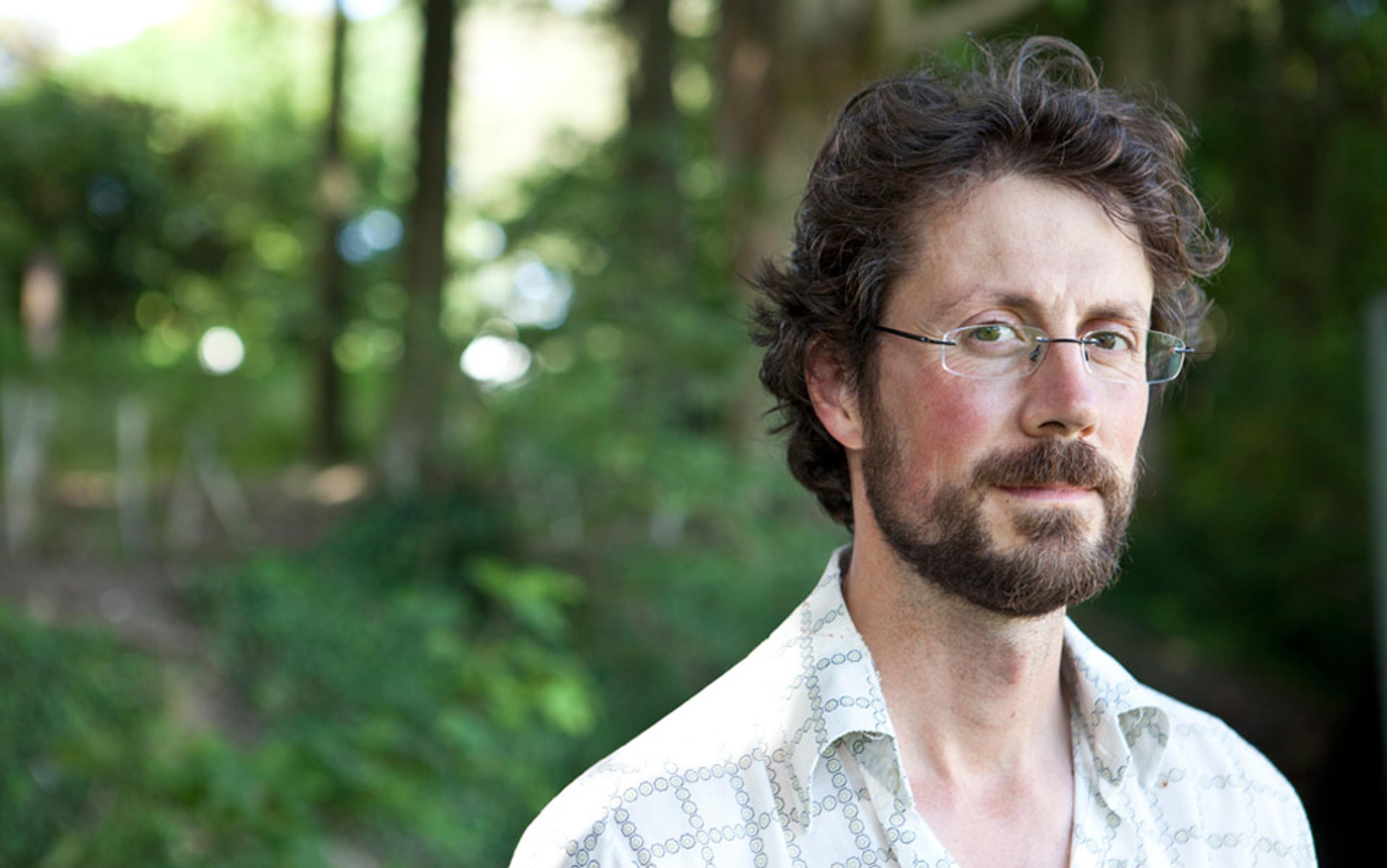
‘I don’t think we are going to stop mass extinction’: Dark Mountain’s founder Paul Kingsnorth.
On this evidence, it might be tempting to dismiss Uncivilisation with a shudder. But what I overlooked in my preparatory reading — perhaps because I wasn’t equipped to feel it myself — was the grief that underpins Dark Mountain. Most festival-goers appeared to have spent their working lives as professional green activists. They weren’t, as Kingsnorth observed to me later, ‘floaty poets’: they were doers, founders of eco-villages, picketers of building works. And as one man who used to develop organic recycling systems told me: ‘We failed.’ The value of Dark Mountain was, he said, psychological. It was a way to cope.
Kingsnorth himself has had a classic idealist’s career. He attached himself to the environmental movement as a student, getting arrested during the Twyford Down road protests. In his own words, the experience politicised him; he joined the antiglobalisation movement, campaigning for the Zapatistas in Mexico and for the independence of West Papua. For a couple of years he was deputy editor of The Ecologist magazine. In the latest Dark Mountain anthology, in an essay that lambasts the techno-utopianism of Stewart Brand and flirts with the ideas of the Unabomber, he finds the green movement at age 40 in a ‘full-on midlife crisis.’ Kingsnorth looks back to the 1992 Earth Summit in Rio, when ‘the future looked bright for the greens’, and comments ruefully that: ‘It often does when you’re 20.’
I met him towards the end of the festival. He looked studious in his frameless specs, and wary, though not particularly of me. He had recently published a book of poetry and was gearing up for the release of his first book of fiction, The Wake, ‘a post-apocalyptic novel set 1,000 years ago’ (it’s about the Norman conquest). The festival, he joked, was a bit of a distraction from writing, and from running up hills near his new home in Cumbria. We sat on a picnic blanket while he tried to get his baby son to go to sleep in a buggy. And he told me about collapse.
‘At this moment in history, I don’t think we’re going to stop the climate change,’ he said. ‘I don’t think we’re going to stop mass extinction, I don’t think we’re going to stop the industrial economy in its tracks.’ The machine will only halt when it runs out of road. Unlike many Jeremiahs, Kingsnorth is circumspect about exactly what to expect and when. Predictions, he said, are always wrong, and collapse may in any case be less dramatic than one imagines. ‘You’re not going to wake up with civilisation gone,’ he said. ‘I don’t foresee in my lifetime a time when there are not houses, some form of law and order, and people buying things from shops and working farms and all that kind of stuff.’
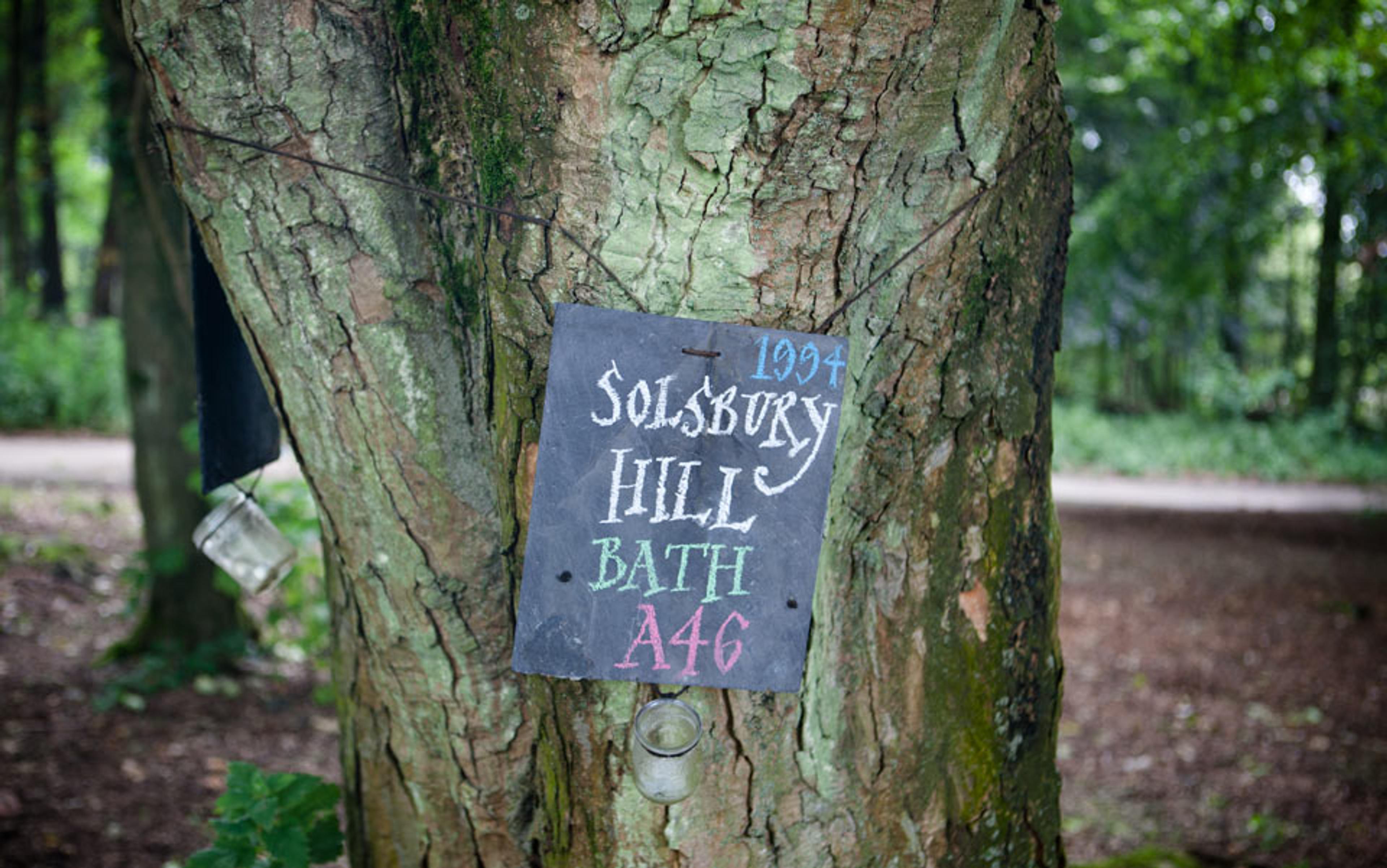
Memorials to vanished places: green activists are haunted by the battles they fought and lost.
Between the activist’s impotence and the imponderability of fate, there might not seem to be much to be done. None the less, Kingsnorth sees it as his task to ‘make it clear what’s wrong.’ And what’s wrong, he believes, is more than just practical short-sightedness. It has a metaphysical character. I asked him what he would think if civilisation didn’t collapse. ‘There’s still a huge hole in the middle,’ he replied. ‘It’s still a society that has to cannibalise nature in order to live, it’s still a society that has to put a price on everything, that has to give a material value to everything, has no spiritual relationship with nature.’
Viewed in this light, Dark Mountain’s intense preoccupation with story and ritual makes more sense. These, after all, are the means by which spiritual dispositions are traditionally cultivated. ‘Mythology is the heart of ecology,’ Martin Shaw told his session at the festival. ‘Everything we are talking about is a kind of love affair.’ The folk musician Andy Letcher told an audience how, after the protesters had been evicted from Twyford Down, they held a party on Old Winchester Hill. There they lit fires, to replace the head of an underground dragon that they said was decapitated by the road cutting.
That might be whimsy, but the sense that landscapes have their own, immanent personalities and interests was sincere, and it was everywhere at Uncivilisation. It would not be possible, I heard on all sides, both to love and respect the land and to cut down forests, hydraulically fracture rock formations, blast mountaintops. Hadn’t I had to thank the earth just for shouting at it? At times it seemed as if the whole event was an experiment in willed pantheism. ‘[W]hat we’re talking about here,’ Kingsnorth notes in the third issue of Dark Mountain, ‘is something that is maybe not exactly religious, but it’s obviously spiritual, it’s beyond the rational …’
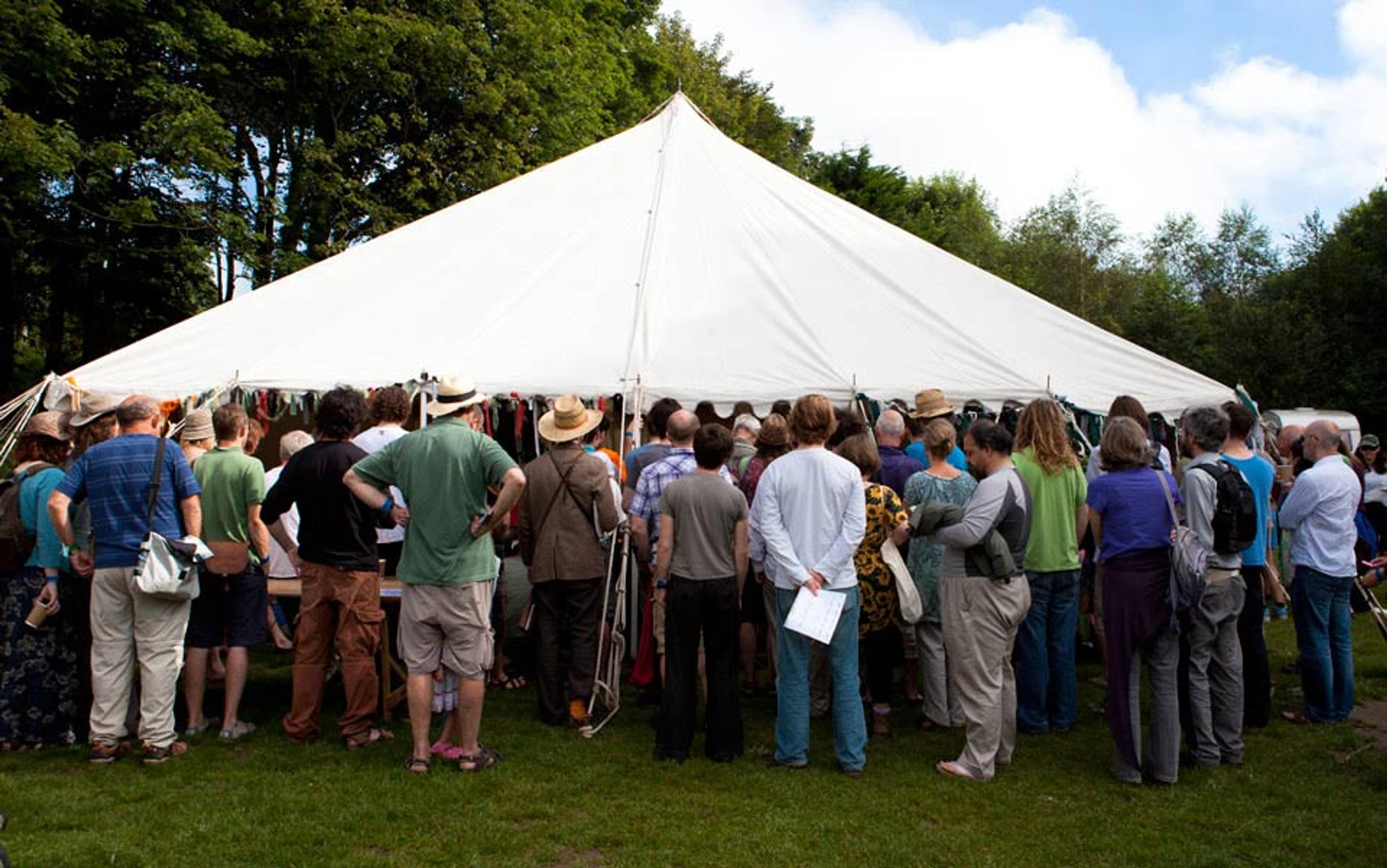
Gentle and concerned: the civility of Uncivilisation.
Will it work? Can it stick? It was hard to know how seriously to take this stuff, and hard to take it seriously when I was doing it. Even the distinction of ‘storyteller’, invoked so reverently during formal discussions, became a bit of a joke. A guy in aviator glasses hoisted a toddler into the air and shouted: ‘Listen to this story! Isaac is a serious storyteller!’
Martin Shaw has the true storyteller’s knack of making the fantastic sound unforced. ‘I don’t think we’re in a Zeus time,’ he remarked during his session. ‘Not a Goddess time either. We live in a trickster moment.’ Accordingly, our own tenders and shapers of myth must become ‘bricoleurs’, collage artists, laying disparate elements side by side and seeing what takes on a life of its own. I suppose that means a lot of rummaging in history’s dressing-up box, at the risk of looking foolish or worse. But the people I met at Uncivilisation seemed for the most part to be neither: they were gentle and concerned.
At the end of the festival we gathered in a circle in the woods. Some of us wore tribal markings, warpaint. Some wore animal masks, hovering far behind us among the trees. Kingsnorth got up to speak. He had just been with our hosts at the Sustainability Centre. ‘Slightly disappointingly,’ he said with a frown, ‘they said this was the most civilised event they’d ever run.’
